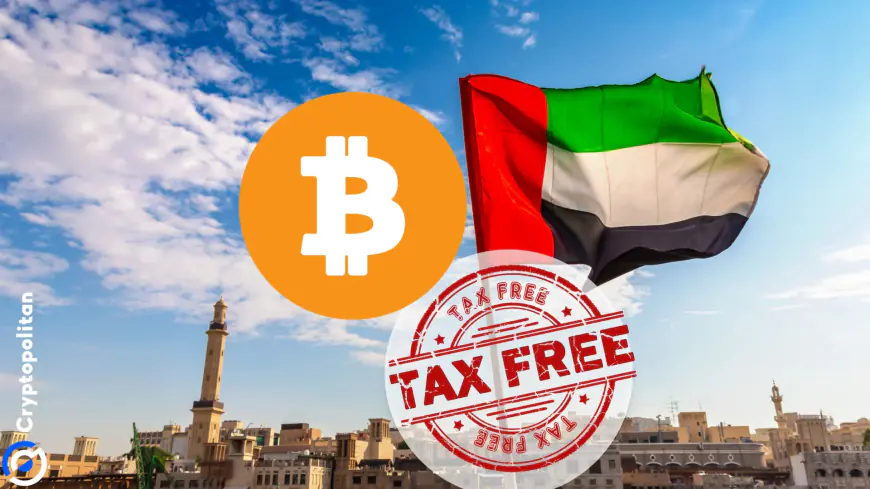UAE removes taxes for all crypto transactions
The Federal Tax Authority (FTA) of the UAE has published amendments to the Executive Regulation of Federal Decree-Law No. 8 of 2017, which regulates Value Added Tax (VAT). The changes, which will come into effect on November 15, following Cabinet Decision No. (100) of 2024, introduce a VAT exemption for transferring and converting virtual assets, […]

The Federal Tax Authority (FTA) of the UAE has published amendments to the Executive Regulation of Federal Decree-Law No. 8 of 2017, which regulates Value Added Tax (VAT).
The changes, which will come into effect on November 15, following Cabinet Decision No. (100) of 2024, introduce a VAT exemption for transferring and converting virtual assets, including cryptocurrencies.
Citizens and businesses involved in crypto will now be exempt from VAT on the transfer and conversion of virtual assets.
UAE makes key amendments to VAT on exports
Article 30 addresses the VAT treatment of goods exports, with a focus on easing the conditions required to apply the zero rate.
Exporters can now present one of several types of documentation to prove the export, such as a customs declaration, shipping certificate, or commercial evidence.
Previously, the process was stricter, demanding multiple layers of proof. Now, by simplifying the documentary requirements, the government aims to reduce the burden on exporters.
The changes also align with regulations from the Excise Tax law, specifically regarding exemptions for excise goods exported out of the country.
Article 31 revises the VAT treatment for exported services. It adds a condition that exported services cannot be considered as performed within the UAE or designated zones under clauses specified in the Decree-Law.
This change effectively narrows the scope for applying the zero rate for services exports, making certain services standard-rated where their place of supply is within the UAE.
Real estate, electronic services, and telecommunications are examples of services that may be affected, depending on their location of use or enjoyment.
Tax treatment of financial services, including crypto
The most notable update is in Article 42, which covers the tax treatment of financial services.
The amendment exempts additional services from VAT, specifically the management of investment funds, transferring ownership of virtual assets, and converting virtual assets.
The latter two (ownership transfer and conversion of virtual assets) are now explicitly exempt from VAT, with retroactive effect from January 1, 2018.
Fund managers overseeing investments should analyze whether their services fall under the VAT exemption.
For fund managers providing services to investment funds licensed in the UAE, the management of fund operations, investments, and performance monitoring are all VAT-exempt.
This exemption also impacts the funds’ VAT recovery position, potentially reducing the costs of managing investments.
Businesses dealing in crypto must now determine how this exemption affects their VAT obligations. Those who have previously paid VAT on virtual asset transactions may need to file voluntary disclosures to correct their historic tax filings.
With these changes, the FTA expects companies to reassess their VAT positions and ensure compliance.
Article 46 adds a new paragraph addressing composite supplies — those involving more than one component.
It clarifies that in cases where there is no principal component, the VAT treatment should be based on the nature of the supply as a whole.
This prevents complications when calculating VAT for bundled services or products.
What's Your Reaction?









































































































